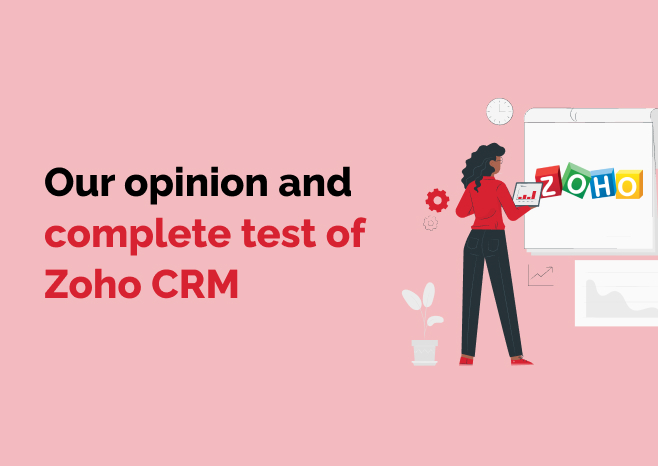Introduction: How AI Is Transforming Small Business Operations
Artificial Intelligence (AI) is no longer a futuristic concept—it’s a practical tool reshaping how small businesses operate. From automating repetitive tasks to enhancing customer engagement, AI is helping entrepreneurs work smarter, not harder. In 2025, AI tools are more accessible, affordable, and powerful than ever, enabling small teams to compete with larger enterprises.
In this article, we’ll explore why AI matters for small businesses, how to choose the right tools, and introduce the top 10 AI solutions categorized by use case. We’ll also discuss how AI complements human work rather than replacing it, and wrap up with actionable advice for getting started.
Why Use AI in a Small Business?
Small businesses often face constraints in time, budget, and manpower. AI helps bridge these gaps by:
- Saving time: Automating tasks like email responses, invoicing, and social media scheduling.
- Reducing costs: Minimizing the need for large teams or outsourced services.
- Improving decision-making: Offering data-driven insights and predictive analytics.
- Enhancing customer experience: Personalizing interactions and providing 24/7 support.
According to the U.S. Small Business Administration, AI can help small businesses “do more with less,” improving internal efficiencies and freeing up time for strategic growth [1]. A Forbes report also found that 93% of small business owners agree AI tools offer cost-effective solutions that boost profitability [2].
Top 10 AI Tools for Small Businesses in 2025 (By Category)
Here are the most recommended AI tools for small businesses this year, grouped by their primary function:
1. Marketing & Content Creation
- Jasper: Generates high-quality marketing copy, blog posts, and ad content quickly [3].
- What it does: Jasper is a powerful AI writing assistant that helps generate blog posts, ad copy, emails, and social media content. It supports multiple brand voices and integrates with tools like Surfer SEO and Grammarly.
- Key features: Brand voice memory, campaign collaboration, AI image generation, browser extensions.
- Pricing: Starts at $39/month for solo creators; $59/month for teams; custom pricing for enterprise 1.
- Use case: Ideal for small marketing teams needing consistent, high-quality content at scale.
- Surfer SEO: Optimizes content for search engines using AI-driven analysis [3].
- What it does: Surfer helps optimize content for search engines by analyzing over 500 on-page signals and providing real-time recommendations.
- Key features: Content Editor, Content Audit, Topical Map, AI Humanizer.
- Pricing: Starts around $29/month; varies by usage and features 2.
- Use case: Perfect for businesses aiming to improve their blog visibility and SEO rankings.
- Pictory: Converts blog posts into engaging short-form videos for social media [3].
- What it does: Converts blog posts, scripts, and long-form content into short, engaging videos using AI.
- Key features: Auto-captioning, video summarization, voiceover sync, access to Getty Images.
- Pricing: Starts at $19/month for individuals; $39/month for professionals; $99/month for teams 3.
- Use case: Great for social media managers and content creators looking to repurpose written content into video.
2. Customer Support & Chatbots
- ChatGPT for Business: Handles customer queries, drafts emails, and creates content with a conversational touch [4].
- What it does: Offers conversational AI for customer support, content creation, meeting summaries, and workflow automation.
- Key features: Customizable responses, multilingual support, structured report generation, API integration.
- Pricing: Varies based on usage and integration; available via OpenAI’s business plans 4.
- Use case: Ideal for businesses needing scalable customer engagement and internal automation.
- Tidio AI Chatbot: Offers real-time automated support and lead generation on websites [4].
- What it does: Provides live chat and AI chatbot support via Lyro, automating up to 90% of customer queries.
- Key features: Multilingual support, FAQ automation, lead generation flows, analytics.
- Pricing: Free for up to 50 AI conversations/month; paid plans start at $29/month 5.
- Use case: Best for e-commerce and service businesses needing 24/7 customer support.
3. Workflow Automation
- Zapier AI: Connects apps and automates workflows with minimal setup [4].
- What it does: Connects over 7,000 apps to automate tasks like lead management, email marketing, and data syncing.
- Key features: Multi-step Zaps, Webhooks, Paths, shared folders, team collaboration.
- Pricing: Free tier available; paid plans start around $20/month depending on task volume 6.
- Use case: Perfect for small teams looking to streamline operations without coding.
4. Financial Management
- QuickBooks with AI: Automates invoicing, expense tracking, and financial forecasting [4].
- What it does: Automates invoicing, expense tracking, and financial forecasting using generative AI.
- Key features: AI-powered categorization, invoice payment links, real-time insights, CIS compliance tools.
- Pricing: Included in QuickBooks Online plans; pricing starts at $30/month 7.
- Use case: Ideal for small businesses needing simplified accounting and cash flow management.
5. Team Collaboration & Productivity
- Notion AI: Enhances productivity with AI-generated notes, summaries, and task suggestions [4].
- What it does: Enhances productivity with AI-generated notes, summaries, task automation, and enterprise search.
- Key features: Meeting transcription, Q&A from workspace data, writing assistant, workflow templates.
- Pricing: Included in Business and Enterprise plans; free trial available 8.
- Use case: Great for remote teams and project managers needing centralized knowledge and automation.
6. Visual Content Creation
- Lumen5: Transforms articles or URLs into professional-looking videos using AI [3].
- What it does: Transforms text, blog posts, and existing media into professional videos using drag-and-drop AI tools.
- Key features: Branded templates, AI script composer, social media optimization.
- Pricing: Freemium model; paid plans start around $19/month 9.
- Use case: Ideal for marketers and educators creating promotional or training videos quickly.
These tools are designed to be user-friendly and scalable, making them ideal for small businesses with limited technical expertise.
Obviously there are a lot of other tools : have a look on the internet, you will find what suits best your needs.
Bonus Tool: TwiLead – The All-in-One AI-Powered Business Platform
TwiLead is a comprehensive, AI-enhanced platform designed specifically for small businesses and freelancers looking to streamline operations and scale efficiently. It combines CRM, sales automation, marketing, social media management, website hosting, booking, and customer communication—all in one place.
Key AI Features:
- AI-Powered CRM: Automatically manage leads, track customer interactions, and personalize follow-ups.
- Marketing Automation: Create and schedule campaigns across email and social media, with AI optimizing send times and content.
- Smart Conversations: Use AI to handle customer inquiries across channels, including chat, email, and SMS.
- E-Reputation Management: Automatically request and manage online reviews to boost your brand’s visibility.
- Data Insights: Leverage AI to analyze customer behavior and suggest actions to improve conversions and retention.
How to Choose the Right AI Tool for Your Business
Selecting the right AI tool can feel overwhelming, but here are some practical tips:
- Identify your pain points: Are you spending too much time on admin tasks, struggling with marketing, or lacking customer support?
- Start small: Test free or low-cost versions before committing.
- Check compatibility: Ensure the tool integrates with your existing systems (e.g., CRM, website, accounting software).
- Look for ease of use: Choose tools with intuitive interfaces and good customer support.
- Prioritize ROI: Focus on tools that save time or generate revenue.
Entrepreneur.com suggests thinking of AI as a “supportive team member” that fits naturally into your business operations [5].
Your AI tools will be your daily assistant. Try to find the one that will fit all your needs : avoid multiplying tools, it leads to extra costs and extra complexity.
AI Complements Humans—It Doesn’t Replace Them
One common concern is whether AI will replace human jobs. The reality is that AI is most effective when it augments human capabilities.
This concept, known as human-AI teaming, involves using AI to handle repetitive or data-heavy tasks while humans focus on strategy, creativity, and relationship-building [6]. For example:
- AI can summarize meetings, but humans interpret and act on the insights.
- AI can automate billing, but humans manage client relationships.
- AI can generate content ideas, but humans refine the messaging.
The U.S. Chamber of Commerce emphasizes that successful AI adoption requires clear collaboration processes and a mindset of curiosity and openness [6].
Conclusion: Embrace AI to Grow Smarter
AI is no longer a luxury—it’s a necessity for small businesses aiming to stay competitive in 2025. By choosing the right tools and integrating them thoughtfully, you can:
- Save time and money
- Improve customer satisfaction
- Make smarter decisions
- Empower your team
Remember, AI is here to support, not replace, your human talent. Start small, stay curious, and let technology help you focus on what matters most—growing your business.
Useful Resources & Links
- U.S. Small Business Administration on AI [1]
- Top AI Tools for Small Businesses – Hourglass Marketing [4]
- Entrepreneur: Choosing the Right AI Tools [5]
- Human-AI Teaming – US Chamber of Commerce [6]
References
[1] AI for small business | U.S. Small Business Administration
[2] How Small Businesses Are Using AI—And How Yours Can Benefit, Too – Forbes
[3] Top 10 AI-Powered Tools for Small Businesses in 2025
[4] 10 Best AI Tools for Small Businesses to Use in 2025
[5] How to Choose the Right AI Tools For Your Small Business | Entrepreneur


